New Faculty Faces for 2023: School of the Arts
Each year, Emerson Today introduces new faculty to the community with a brief bio and invites them to answer five quick questions about their field, their classroom, and their personal interests.
This year Emerson welcomes 17 new faculty members across all departments, as well as nine folks who already had been teaching at Emerson, but are returning this year in new roles.
Here are the new School of the Arts faculty members. You can see the new Marlboro Institute of Liberal Arts and Disciplinary Studies and the School of Communication faculty in an earlier story.
New Faces
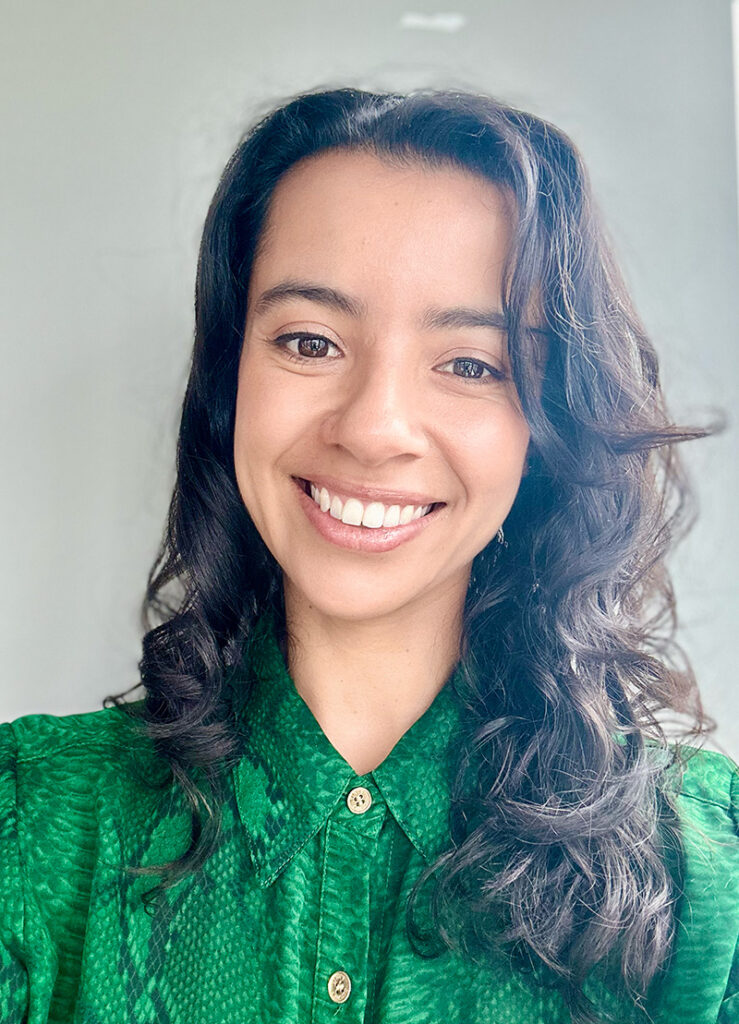
Natalia Aguilar Vásquez
Assistant Professor
Writing, Literature and Publishing
Natalia Aguilar Vásquez is an interdisciplinary scholar of Latin American literature and visual arts. Her teaching and research focus on social and post-colonial justice, gender-based violence, and community building in times of conflict, particularly in Colombian, Mexican, and Argentine cultures.
Her book project, Animated Dwellings: Building Life Amidst the Violence, A Study of Livelihood in Colombian and Mexican Art and Literature, focuses on queer infrastructures and homes as alternatives against the violence of machista societies. Her work has been published in the anthology Latin American Culture and the Limits of the Human (University of Florida Press, 2020), and in Vista, Journal of Visual Culture, among others.
She has a BA in literature from Universidad de los Andes, an MA in art history from Leiden University, and a PhD in Latin American literature from New York University.
What’s the most exciting thing happening in your field right now?
I’m excited about how contemporary writers and artists in Latin America work across disciplines. There is an increasing curiosity to disturb the lines between disciplines and methods. For instance, Mexican artist Verónica Gerber Bicecci wrote the novel Empty Set, in which the written language becomes visual. There is also an essential repositioning of indigenous and Afro-Latino cultures and cosmologies at the center of contemporary narratives of the nation. Natalia Toledo’s poems and Cecilia Vicuña’s installations are wonderful examples of such a shift.
What’s the last thing you learned?
A couple of months ago, I visited the Isabella Stewart Gardner Museum for the first time and I loved it. I learned that Isabella curated every single object in the collection. In her will, she stipulated that nothing could be changed, moved from its original location, or sold. Also, if your name is Isabella, you can get in for free!
We’re looking for recommendations. What book, film, artist, TV series, play, publication, etc., should we know about?
I recommend the 2022 movie Argentina, 1984. It is a historical film about the trials against the members of the military dictatorship. What I love about the movie is that it focuses on the research of young lawyers to find evidence and gather the testimony of thousands of victims. It portrays the need for intergenerational conversations about the past, especially if it is painful.
Lately, I have been fascinated by Latin American sci-fi writers who explore the topic of climate change. For instance, there is the work of Michel Nieva, who writes cyber-punk stories staged in the Argentine Pampas, or the novel Tender Is the Flesh by Agustina Bazterrica, in which a virus has contaminated all animals.
What do you want students to take away from your classes?
I want my students to feel confident about their ideas, opinions, and creative projects. I also hope they notice cultural, political, and social connections between the artistic production of the United States and Latin America. Past and present writers have taken advantage of our geographical proximity: Gabriel Garcia Marquez was an avid reader of William Faulkner, Giuseppe Caputo of James Baldwin, and writers like Gloria Anzaldua and Ariana Brown are challenging static ideas of “Americanness.” I’m confident that students would find inspiration in the Hispanic world.
What do you love to do when you’re not working?
I was one of those people who learned how to bake sourdough loaves during the pandemic. Since then, I have been experimenting more in the kitchen; my last dish was mushroom ravioli. I made it from scratch! I also practice yoga, play the New York Times games, and often rewatch Schitt’s Creek.
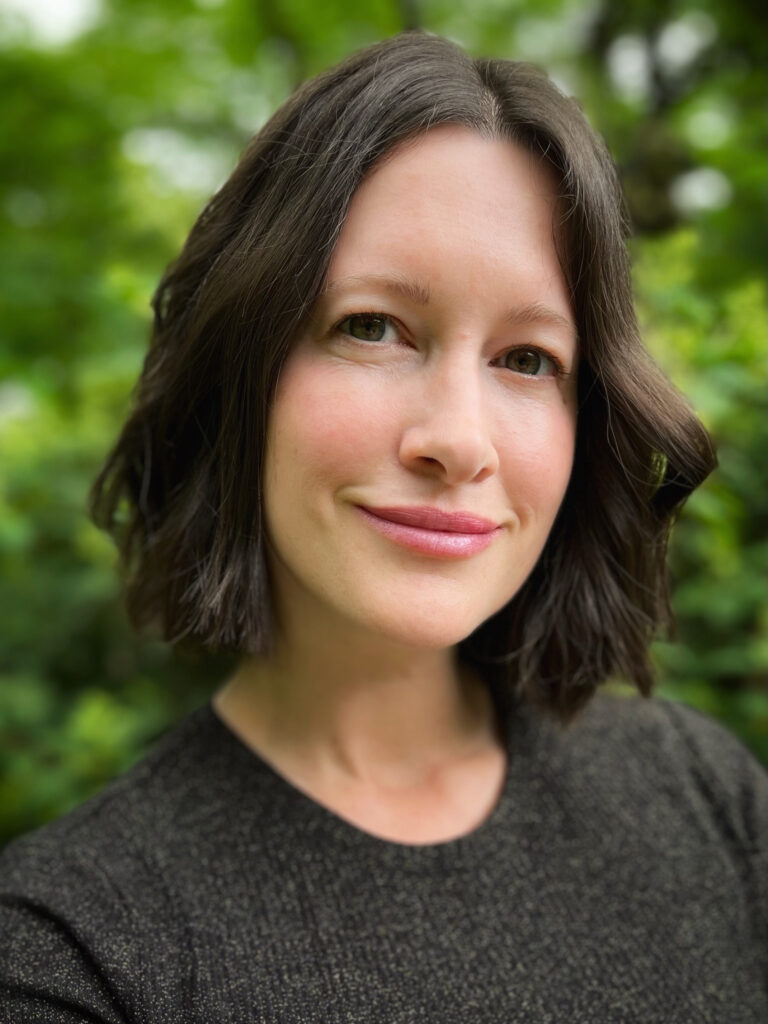
Sarah Cole
Assistant Professor
Writing, Literature and Publishing
Sarah Cole was most recently a publishing director at John Murray Press, a division of Hachette UK, where she managed four imprints: Chambers, Teach Yourself, John Murray Learning, and Michel Thomas. Her career has taken her from New York to London, and produced a diverse range of publications, from beautiful gift books such as Nautilus Prize-winning Poems from the Edge of Extinction and Everyday Shakespeare, to the bestselling guided journal You Are a Global Citizen, and courses in more than 70 languages.
She has launched podcasts and virtual events, and is adept at creating new business models, spearheading Cambridge University Press’s Special Projects team and publishing their first fully online course. As part of her mission-driven approach, Cole has implemented eco-friendlier practices and partnered with charities to support linguistic diversity.
She has a BA in literature and rhetoric from Binghamton University and an MA in education from New York University.
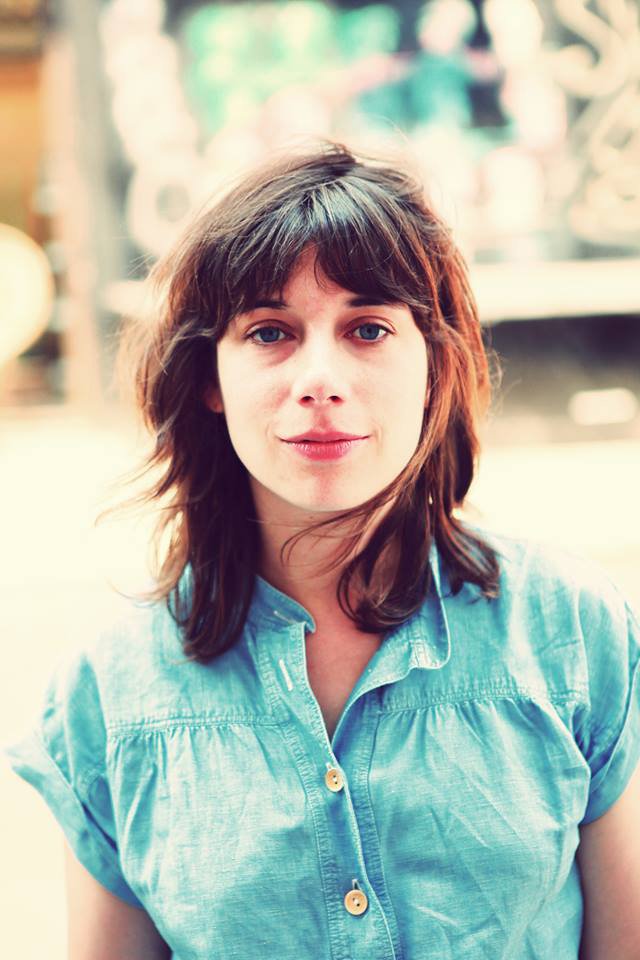
Gabrielle Demeestère
Assistant Professor
Visual and Media Arts
Gabrielle Demeestère wrote and directed the feature film, Yosemite, starring James Franco and Henry Hopper, released theatrically and on Netflix in 2016, which Variety called “an impressive debut.” She currently is in pre-production on her second feature film, Terra, which participated in the Torino Film Lab and in the Gotham Week Project Market in 2022.
Prior to joining Emerson, Demeestère taught screenwriting in the MFA in Playwriting program at Rutgers University, at Bard College at Simon’s Rock, Tufts University, and Syracuse University.
Born and raised in Paris, she holds a BA in literature from Yale University, and an MFA in filmmaking from New York University.
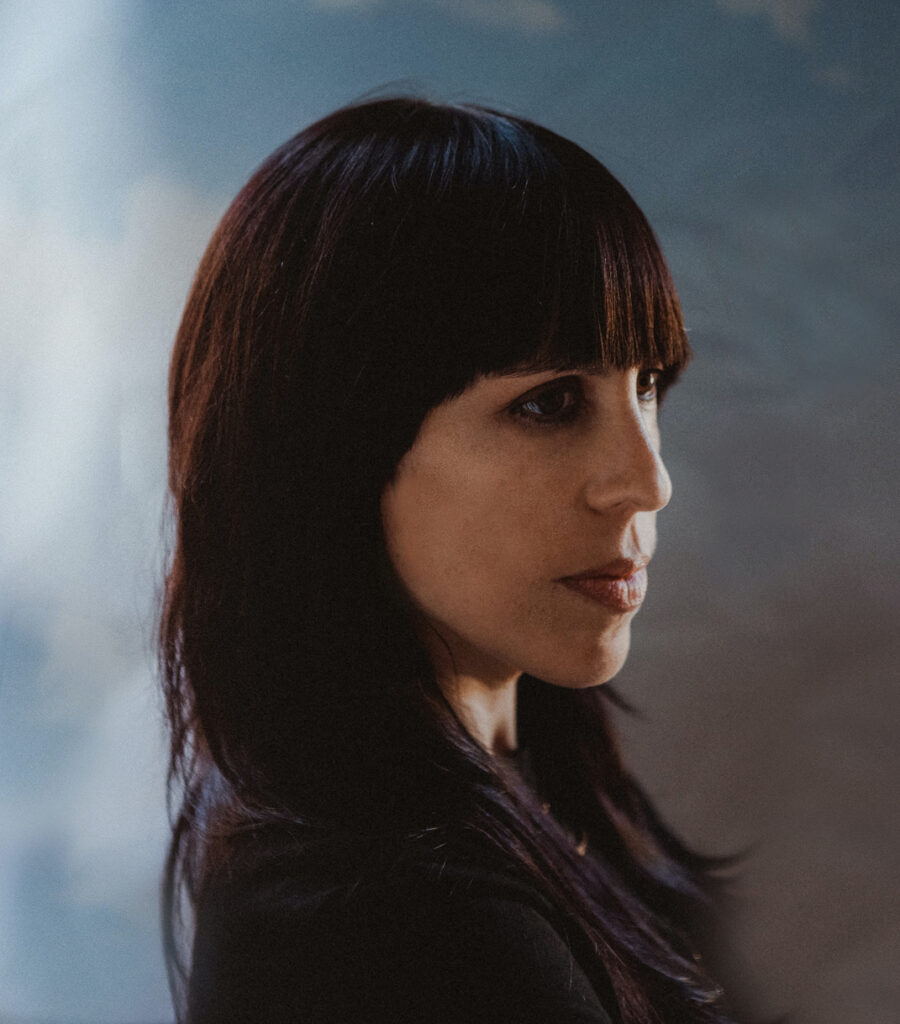
Margot Douaihy
Assistant Professor
Writing, Literature and Publishing
Margot Douaihy teaches in the areas of creative writing and multimodal storytelling. Her teaching emphasizes intersectional approaches to the craft and theory of creative writing, metacognitive creative writing, and critical-into-creative methodologies. Her pedagogy centers the student-writer as a vital and valued member within a responsive workshop. Her scholarly work with Cambridge University Press and the Journal of Creative Writing Studies examines the theoretical perspectives, practical approaches, and decolonized structures that fuel innovation in the creation and critical study of literary texts.
Douaihy is the author of multiple books, including the Queer crime novel Scorched Grace, the inaugural title of Gillian Flynn Books. Scorched Grace was named a New York Times Book Review Editors’ Choice and a Best Book of 2023 by Barnes & Noble, Marie Claire, and BookPage, as well as a Critics’ Pick from The Guardian, Apple Books, Amazon, and The Times of London.
Douaihy holds degrees from the University of Pittsburgh and Goldsmiths, and she received her PhD in creative writing from Lancaster University.
What’s the most exciting thing happening in your field right now?
Intersectional crime fiction! I am heartened and excited to see more mysteries, thrillers, and noir narratives by BIPoC, LGBTQ+, and neurodivergent writers. We are developing the canon and redrawing the crime-fiction map. This enrichment is vital for the genre, and it’s great news for mystery fans and readers. I give so much credit to groups like the Crime Writers of Color, Queer Crime Writers, and Sisters in Crime for their support and passionate advocacy work. I’m proud to be an active member of the Queer Crime Writers and Sisters in Crime associations. Please check them out to learn more.
What’s the last thing you learned?
I am slightly moon-obsessed, but I had no idea the moon’s surface is covered in powdery dust called regolith. I just learned that, thanks to NOVA on PBS. Because the moon has no atmosphere to speak of, there’s no erosion like we have on Earth. This means that the sharp-edged tracks left by the Apollo lunar rovers and the footprints of astronauts will likely remain preserved on the moon’s surface for millions of years, undisturbed by wind or water. So, this massive magical thing floating in the sky holds the memory of being touched. How confounding, poetic, and wild. To my mind, it’s an urgent reminder to think very carefully about where and when humans intervene with nature and objects in space.
We’re looking for recommendations. What book, film, artist, TV series, play, publication, etc., should we know about?
My top two recommendations for mystery novels this summer: All the Sinners Bleed by S.A. Cosby and My Murder by Emerson’s very own [WLP Assistant Professor] Katie Williams. My Murder is one of the most hauntingly original takes on the murder mystery that I’ve ever read, with speculative flair and an epic plot twist that knocked the breath right out of me. I was literally breathless. Stunned. If you haven’t devoured these two books yet, please do so immediately.
What do you want students to take away from your classes?
Creative attunement, confidence, and care. You know more than you think you do. Double down on your unique voice and your questions. Also, our work together won’t end when the semester concludes. Attunement, critical thinking, and genuine curiosity are keys to living an inspired life, no matter what path you choose. Our time at Emerson will give you tools to create, engage deeply, reflect, and thrive.
What do you love to do when you’re not working?
Kayaking in rivers and lakes, playing guitar, hanging out with my family (including my two cats), going vintage shopping, running and biking the rail trails of Massachusetts, soaking in the natural beauty of this mysterious world.
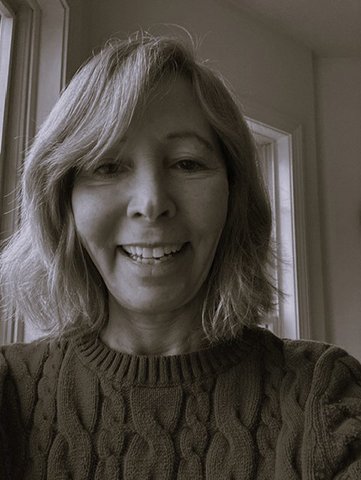
Barbara Doyle (started January 2023)
Artist-in-Residence
Visual and Media Arts
Barbara Freedman Doyle teaches producing for the VMA program. She began her career at Tri-Star Pictures, then continued as coordinator/production supervisor on projects for CBS, NBC, Disney, TNT, Showtime, Hearst Entertainment, Hallmark, and 20th Century Fox.
She served as associate dean of production at the American Film Institute; chair of the Film Division and creator of the College to Career Program at Chapman University’s Dodge College; and as chair of motion pictures at Belmont University in Nashville. She is the author of the book Make Your Movie: What You Need to Know About the Business and Politics of Filmmaking (Focal Press, 2012).
She holds degrees from Harvard University and Framingham State University.
What’s the most exciting thing happening in your field right now?
I think in some ways AI is the most exciting, but it is definitely double-edged. The great thing about AI is that for filmmakers with limited resources, and for media creators in general, it opens up all kinds of possibilities. The worst thing about AI is that like any tool, it can be used as a substitute for original thought. And the social implications of AI can be extremely destructive. So yes, exciting – but in the wrong hands, dangerous.
What’s the last thing you learned?
I’m constantly learning! But I think the most valuable thing I’ve learned this summer is that at a certain point, creativity and problem-solving improves when you make it a point to shut off your phone and laptop and just sit and think.
We’re looking for recommendations. What book, film, artist, TV series, play, publication, etc., should we know about?
See the big hits of the summer – Barbie, Oppenheimer – but also go back and watch the films you missed during the last couple of years because you were too busy to see them. Same with TV series. I binged Succession and The Old Man – smart writing.
What do you want students to take away from your classes?
I want students to be able to learn to see how everything builds to the big picture, to learn to spend time thinking and finding creative solutions, and to understand collaboration. Also, to understand how to take what they learn and apply it, so that they can sustain a career.
What do you love to do when you’re not working?
I love to help my former students. I’ve taught at three film schools and I am still in touch with many of my alums, and I am often reading/giving notes on scripts, or helping them plan their next job or career move. This summer, because of the strike, a lot of them are very worried about the future.
Also, of course, family, friends, hanging with my dog, seeing films, reading.
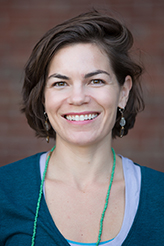
Rivka Eckert
Artist-in-Residence
Performing Arts
Rivka Eckert ‘06 teaches in the areas of theatre education and applied theatre. As a scholar activist, her writings have been published in esteemed outlets including Teaching Artist Journal, TYA/USA, and Pedagogy and Theatre of the Oppressed Journal, and her current book project, Into Abolitionist Theatre, is under contract with Routledge. She has been recognized for her work and received the Arizona Humanities Rising Star Award.
Eckert’s expertise lies in theatre in prisons and rehabilitative facilities, community-based theatre, and the politics and ethics of arts for social change. Additionally, she examines the intersections of motherhood, advocacy, and equity in higher education, theatre, and performance.
She holds degrees from Emerson College and Arizona State University.
What’s the most exciting thing happening in your field right now?
So much! There is a huge movement for labor rights happening right now with strikes from the WGA and SAG-AFTRA. The results of this strike (and the strike itself) will shape the face of performance for years to come. In short, we are in a moment where our culture is very publicly debating capitalism, exploitation, and performing arts.
What’s the last thing you learned?
I have young children so I am constantly learning how to fix broken things. Many a late night I’m tinkering with smashed toys, mending torn pages, and patching worn out knees. Last night I learned how to replace the tracks on a dresser drawer so it can open and close again.
We’re looking for recommendations. What book, film, artist, TV series, play, publication, etc. should we know about?
I’m REALLY excited about being able to see a production of James Ijames’ Fat Ham at the Huntington Theater Company this season. I also just finished Robin Wall Kimmerer’s Gathering Moss: A Natural and Cultural History of Mosses. Read it on a plane ride and it knocked the breath from me (in a good way), highly recommend.
What do you want students to take away from your classes?
Besides the important core content around history, ethics, and practices of theatre education and applied theatre :), I hope students leave my classes knowing that they are part of a movement of theatre-makers guided by an ethos of radical love and transformative justice. I hope they leave knowing skills to sustain a life as an artist, and knowing that they are not alone.
What do you love to do when you’re not working?
Sunshine, delicious food, ecstatic movement. When I’m not teaching, I work on community-engaged theatre projects and writing. You’ll also find me out playing in nature — trails, bike rides, gardening, and swimming.
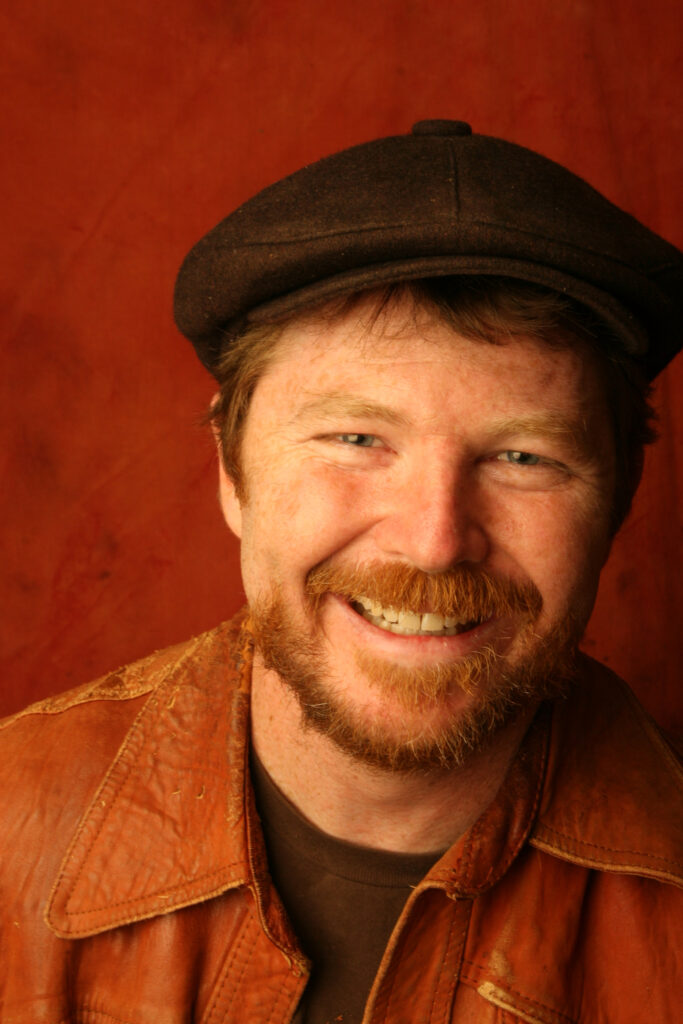
Owen Egerton
Assistant Professor
Visual and Media Arts
Award-winning novelist, screenwriter, and filmmaker Owen Egerton is the writer/director of several films, including Mercy Black, Blood Fest, and Follow. He also is the author of a number of books, including The Book of Harold the Illegitimate Son of God, How Best to Avoid Dying, and the PEN Southwest Book Award winner, Hollow, which was named one of NPR’s Best Books of 2017. He has been voted Austin’s Best Author six times by readers of The Austin Chronicle.
Egerton is one of the founding members of the award-winning comedy show Master Pancake Theater, and has performed comedy for the stage, radio, and screen. He’s a host for Texas Monthly and NPR podcasts, and is the long-running emcee for the Fantastic Debates at Fantastic Fest.
He holds degrees from the University of Texas and Texas State University, and has taught creative writing and screenwriting for the Sundance Institute Collab, Roosevelt University, St. Edward’s University, and the Khoros Film Foundation in The Gambia.
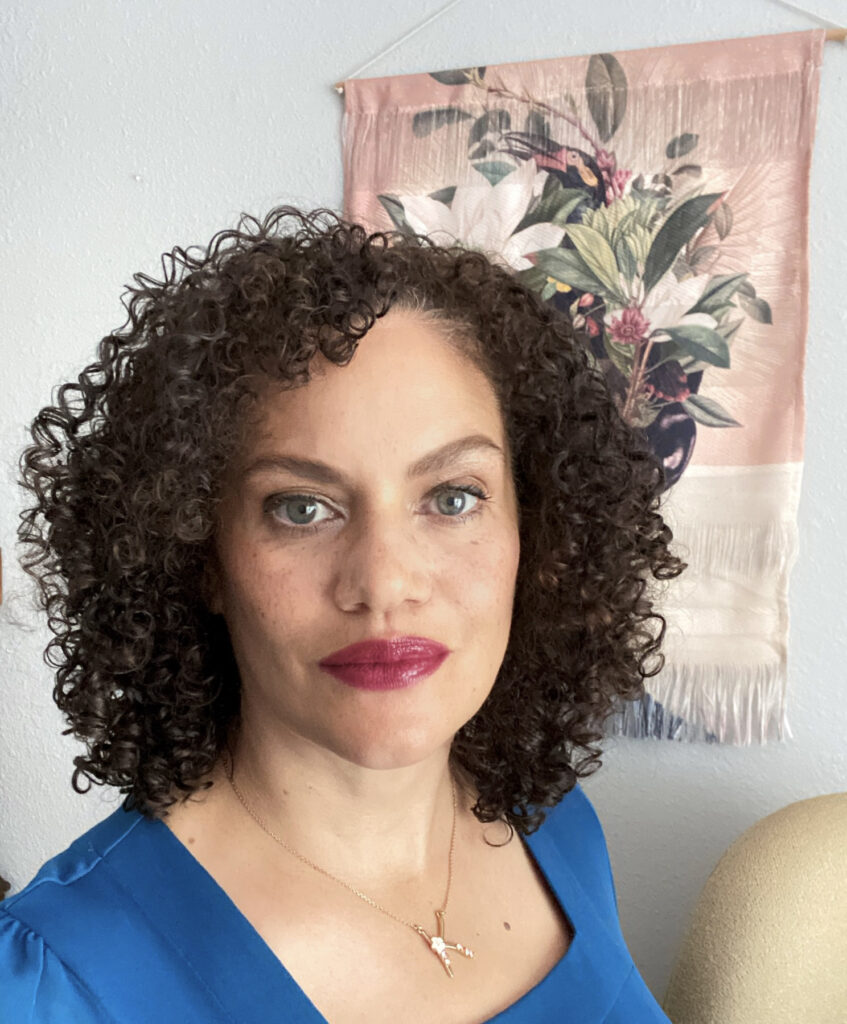
Kirsten Imani Kasai
Assistant Professor
Writing, Literature and Publishing
Kirsten Imani Kasai is the author of three novels. Described by Booklist as “a propulsive read, full of commentary on ethnic identity, mental illness, and power,” her Afro-Gothic novel The House of Erzulie (2018, Shade Mountain Press) was a selection of The Denver Center for Trauma & Resilience Inclusiveness Book Club. Her speculative fiction series Ice Song (2009, Del Rey), and Tattoo (2011, Del Rey) earned comparisons to Ursula LeGuin’s The Left Hand of Darkness.
Her teaching and research interests include African American and Diasporic literature, body horror and the Gothic in fiction and film, hybrid and experimental storytelling forms, feminist utopias, and representations of mixed (biracial) people in contemporary American literature.
A Ph.D. candidate in Gothic research studies at Manchester Metropolitan University, Kasai’s dissertation examines absent voices, feminine power, and the quadripartite goddess power in historical witchcraft narratives. She earned her MFA in creative writing from Antioch University Los Angeles.
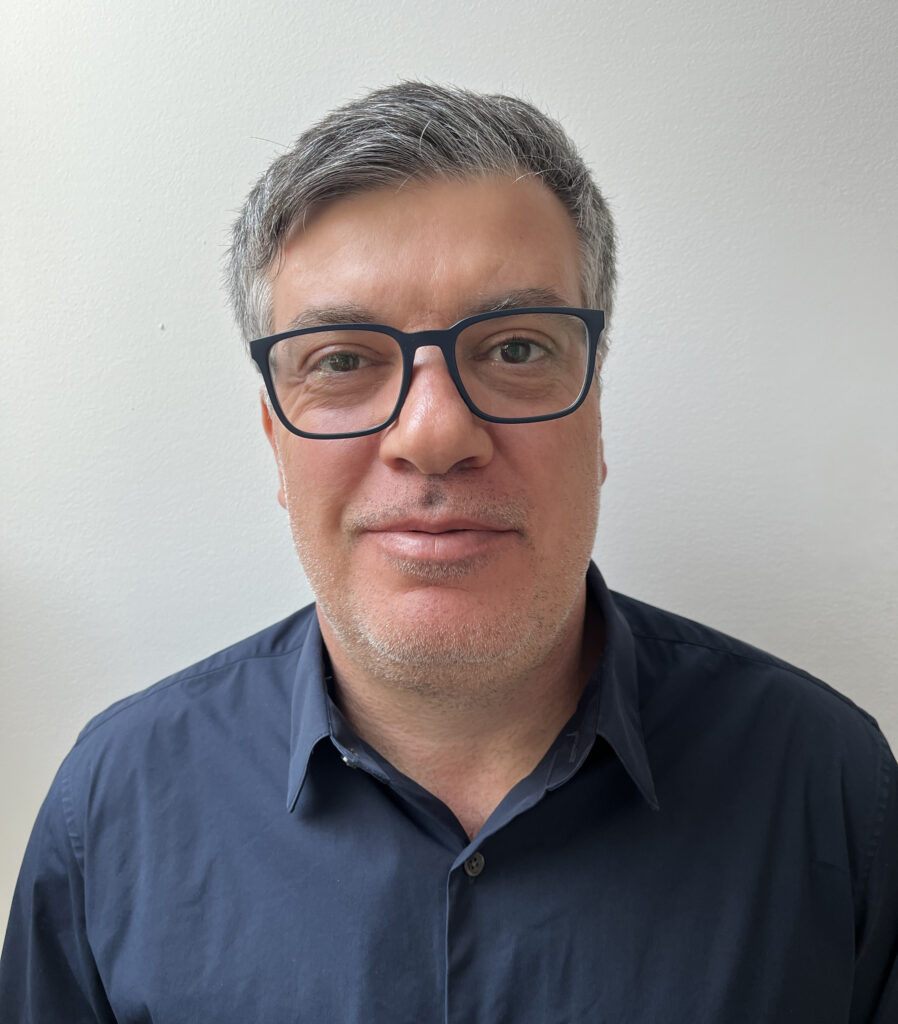
Sayed Kashua
Assistant Professor
Visual and Media Arts
Sayed Kashua is a screenwriter, novelist, and essayist. He is the author of four novels and one collection of essays translated into multiple languages, and received the Israeli Film and TV Academy Award for best screenplay four times.
He is the creator and writer of the TV shows Arab Labor (Keshet TV, 2007-2013), The Writer (KAN and Keshet TV, 2015), and Madrasa (KAN, 2023). He wrote the script for the film A Borrowed Identity (Dir. Eran Riklis, 2014), and was the script consultant and story editor for the second and third seasons of the TV drama Shtisel (Netflix, YES, 2015 and 2020). Recently, he developed TV pilots for HBO, Sony, and Keshet International.
Before joining Emerson, Kashua was a clinical visiting professor at the University of Illinois at Urbana-Champaign, and a lecturer at Washington University in St. Louis, where he is pursuing his Ph.D. in the Program of Comparative Literature, Track for International Writers.
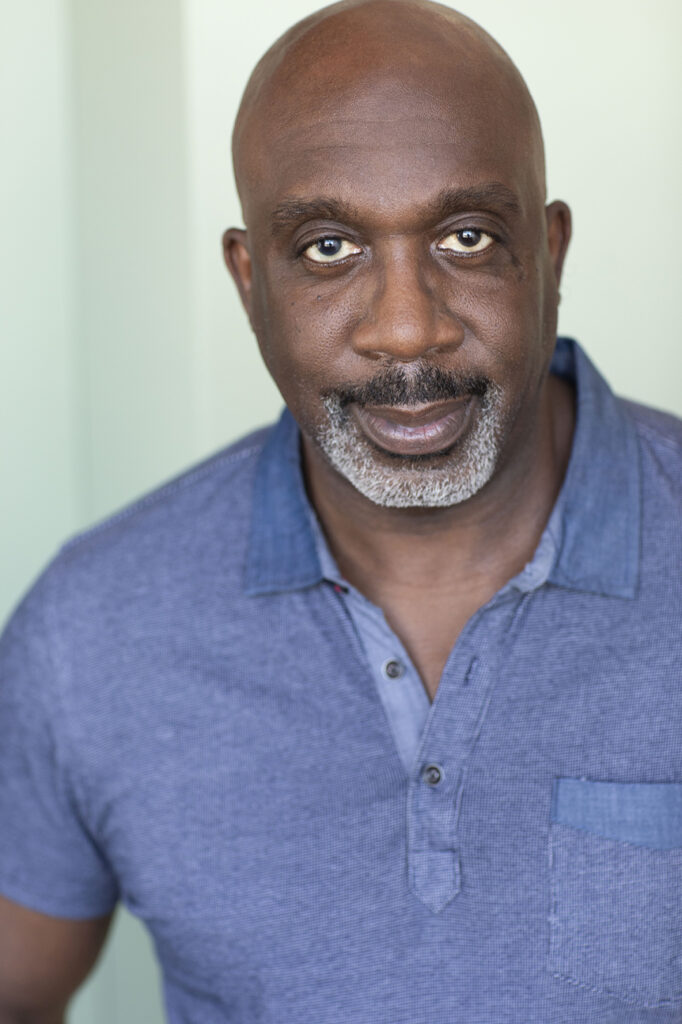
Jonathan Kitt
Assistant Professor
Performing Arts
Jonathan Kitt’s teaching focuses on scene study and advanced acting courses in the BFA Theatre and Performance and BFA Acting programs. His approach to performance is Stanislavsky-based, joined with the Black Acting Aesthetic, which supports an anti-racist and an inclusive process to creating character, as well as story. He hails from New York City, where he was an acting apprentice with the Negro Ensemble Company, is a two-time Audelco Award nominee for Outstanding Lead Actor, and has performed in world premiere shows.
Kitt has co-authored a satirical screenplay titled Wrap Hollywood Wrap, and developed the solo show Superman, Black Man, Me: A Stage Easy. He has been twice recognized by the Kennedy Center American College Theatre Festival (KCACTF) Region VI for Excellence in Directing.
He holds a BA concentrating in theatre and film from Clark Atlanta University, and an MFA in acting from The Theatre School at DePaul University.
What’s the most exciting thing happening in your field right now?
I’m excited about the consciousness and concerted efforts for more diversity, equity, and inclusion in the Theatre.
What’s the last thing you learned?
The last thing I learned, and I’m still learning, is the subway system here in Boston. I’m a train person, so I want to know everything I need to know about the MBTA.
We’re looking for recommendations. What book, film, artist, TV series, play, publication, etc., should we know about?
I like most British crime and detective dramas; Line of Duty is my absolute favorite. The American television dramas? Anything in the Taylor Sheridan universe: Yellowstone, 1883, 1923, Mayor of Kingstown, and Tulsa King. Other than that, lots of documentaries. A great docuseries is The 1619 Project on Hulu. My favorite writer is Walter Mosley. He writes everyday, flawed Black heroes. Pick any of his books/mysteries and be in for a treat.
What do you want students to take away from your classes?
One thing I like for students to embrace is their authentic self. When an actor brings their race, culture, history, ethnicity, identity, gender, and ability to the forefront it helps to add to the uniqueness of Theatre. Everyone has value, importance, and special characteristics. Once those attributes are married with the portrayal of character, theatre that resonates is born.
What do you love to do when you’re not working?
When I’m not working, I like exploring new places, going to museums, working out, sitting on a beach, or hiking. Of course, I like catching a good play for inspiration.
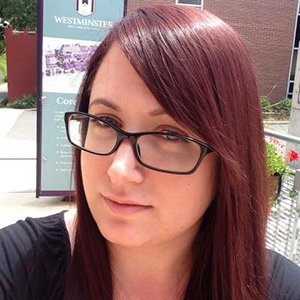
Lesley Willard
Assistant Professor
Visual and Media Arts
Lesley Willard is a co-founder of Fan Studies Network-North America, and a steering member of the Fan and Audience Studies Scholarly Interest Group. Her work has been published in In Media Res, Transformative Works and Cultures, A Tumblr Book, and A Fan Studies Primer: Method, Research, Ethics.
Her teaching and research explore issues of labor and access in the media industries. She uses digital platforms to explore questions of access for “amateur” creators in conversation with their impacts on below-the-line workers operating within the U.S. media industries. As the former program director for the Center for Entertainment and Media Industries, she is part of a research team studying the role internships play in shaping access for marginalized creators. She also is co-authoring a book that explores how successful professionals in Hollywood got their starts.
What’s the most exciting thing happening in your field right now?
As someone who studies new media and labor conditions in the contemporary media industries, the dual WGA and SAG-AFTRA strikes and the ongoing debates around generative AI are the most impactful things happening in my field at the moment. In terms of exciting areas of research, I find platform studies and algorithmic cultures fascinating.
What’s the last thing you learned?
After years of using the platform, I just learned you can export your Canvas calendar feed to your Google Calendar and populate it with all of your class assignment deadlines. Also, I learned that driving a U-Haul through Boston streets should be classified as an Olympic sport.
We’re looking for recommendations. What book, film, artist, TV series, play, publication, etc., should we know about?
I think recommendations really depend on who you’re recommending them to, but lately I’ve been reading Ruha Benjamin’s Viral Justice, rewatching In the Flesh, listening to Recode Media, and playing Baldur’s Gate 3 – I’d recommend those to anyone who’s interested.
What do you want students to take away from your classes?
What I want students to take away from my classes is a greater understanding of their own role in, influence on, and responsibility for systems of power like media. Our students are not just students; they are also the next generation of creators, consumers, and citizens. As such, I think it’s our responsibility as educators to provide them with the perspectives, literacies, and skills – not to mention the confidence – necessary to become innovative leaders, critical thinkers, creative professionals, and ethical decision makers. When students leave my classes, I want them to feel prepared and empowered to assert that agency in their art, their careers, their communities, and their lives.
What do you love to do when you’re not working?
The lines between work and play get a little blurry when you research and teach media you love, but when I’m not working, I like to spend time visiting with friends, playing video games, scrolling social media, trying out new recipes, getting bossed around by my ancient cat, and, as a new West Coast transplant, exploring new places in Boston.
New Roles
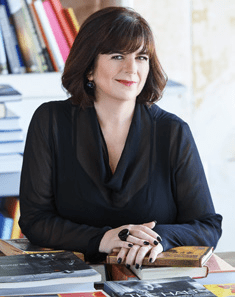
Kate Cherry
Artist-in-Residence
Performing Arts
Educator, multi-award-winning theatre and opera director, and artistic leader Kate Cherry led two major Australian cultural institutions: the National Institute of Dramatic Art (NIDA) and Black Swan State Theatre Company (BSSTC). As artistic director/CEO, she initiated organizational transformation and developed programs that support artistic, cultural, and strategic imperatives, delivering ongoing financial surplus, and achieving growth to improve NIDA’s world-wide ranking of performing arts schools.
Cherry initiated Australia’s first collaboration with the National Theatre of China. She also initiated and directed the first simulcast of a theatre production in Australia, and established programs for emerging theatre makers and writers. She has directed 11 seasons for BSSTC and NIDA, produced more than 100 productions in the theatre, directed more than 60 professional productions in opera and theatre, and taught/directed at leading performing arts institutions throughout Australia and the United States. Companies she has directed for include Seattle Opera, New Zealand Opera, Lincoln Center Theater Lab, Melbourne Theatre Company, and many more.
Previously an affiliated faculty member at Emerson, she holds an MFA from the University of California, Los Angeles, and a BA from Bard College.
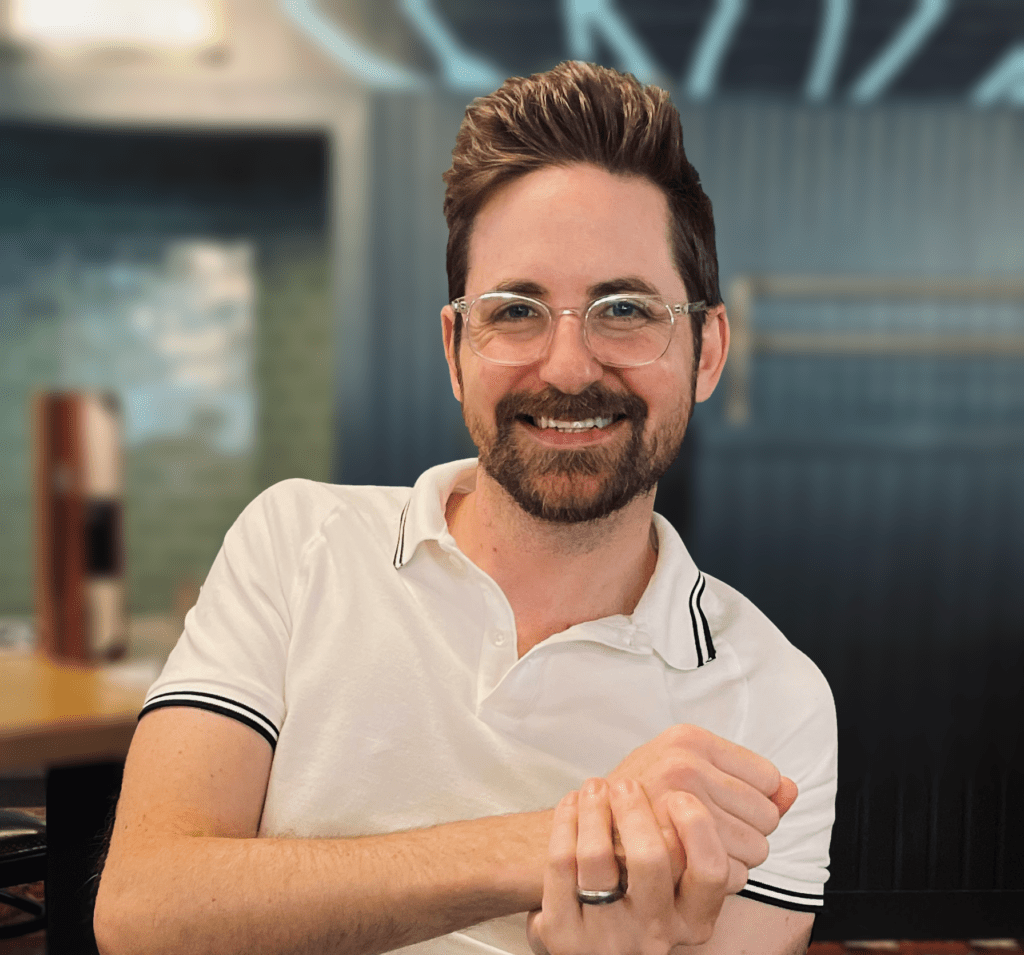
Matthew McMahan
Assistant Professor
Performing Arts
Matthew McMahan studies the history and theory of comedy. For the past five years, he has served as the assistant director for the Center for Comedic Arts at Emerson, where he has taught the Evolution of Comedy I & II, improv, sketch, and Border-Crossing and Comedy.
He is the author of Border-Crossing and Comedy at the Théâtre Italien, 1716-1723 (Palgrave) and numerous articles on clowning, vaudeville, and farce. He currently is working on two book projects: a documentary history of clown acts dating back to the 18th century, and a monograph entitled Funny Moves: Migration and Comedy in the Twenty-First Century. McMahan co-leads the comedy studies working group at the American Society for Theatre Research (ASTR), is an active improv performer, and has led several workshops on applied improvisation.
He has a Ph.D. in theatre history from Tufts University and an MFA in dramaturgy from Stony Brook University.
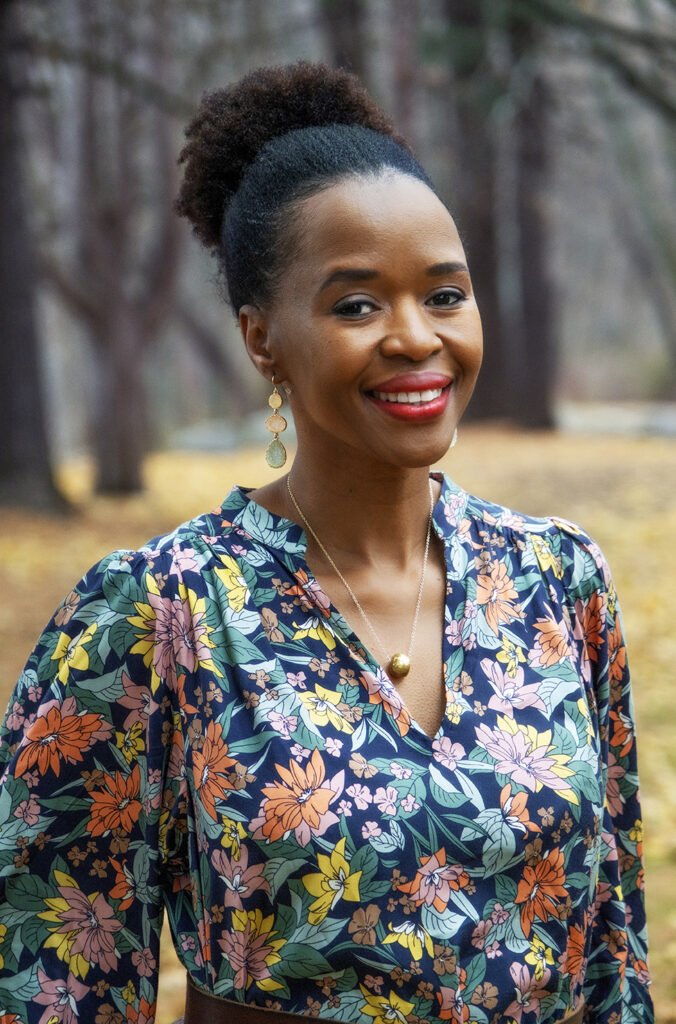
Thato Mwosa
Assistant Professor
Visual and Media Arts
Thato Mwosa ‘01, formerly an affiliated faculty member at Emerson, teaches courses that focus on the foundational knowledge and principles of screenwriting. Her writing explores personal issues that pertain to women and girls, including outdated representations and misconceptions about womanhood and girlhood.
Mwosa’s first feature film, Memoirs of a Black Girl, was released in 2021 by 1091 Pictures. She has been featured by outlets including WBUR, WGBH, and the Boston Globe, amongst others. In 2021, she was selected for Company One’s Playlab Circuit Volt Playwriting Lab. She was a finalist for the 2019 Mass Cultural Art Fellowship in the Dramatic Writing category. In 2021, Mwosa was a quarterfinalist for The Academy Nicholl Fellowship, and a semifinalist for Writer Lab NY for her screenplay, A Blue Dawn.
Mwosa holds a BA from Emerson and an MFA in creative writing from Lesley University.
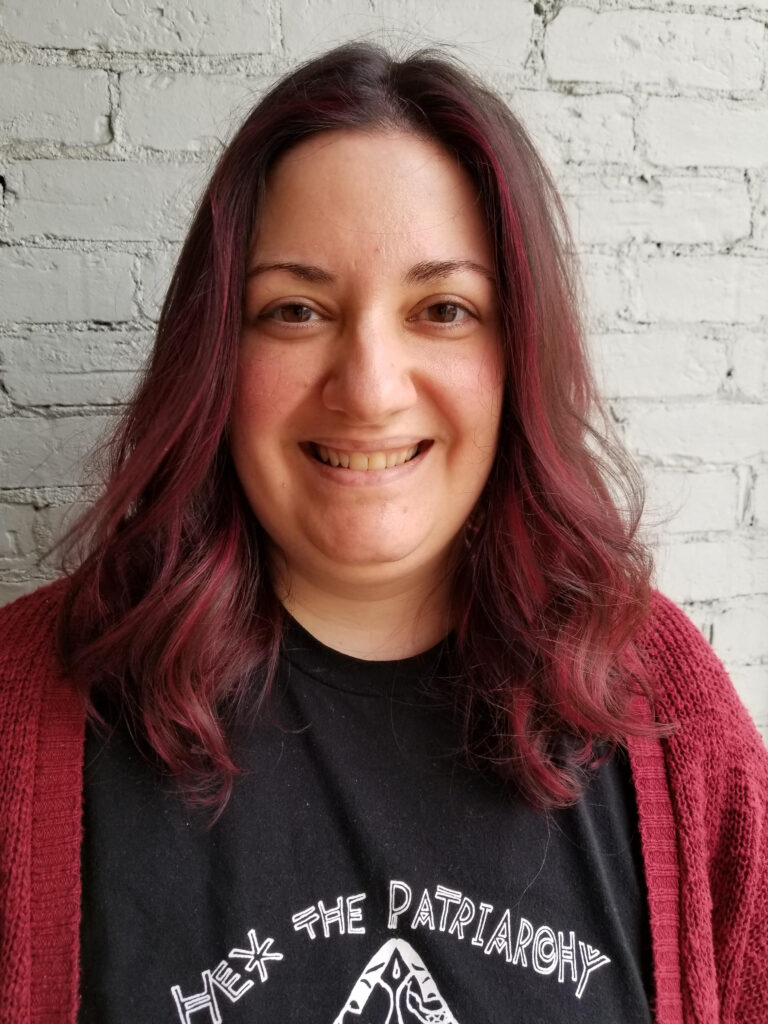
Raquel Pidal
Assistant Professor
Writing, Literature and Publishing
Raquel Pidal, MA ‘08 has two decades of publishing experience. After two years in publicity at Harvard University Press, they went on to serve as editorial director of Platform Press for eight years, and managing editor of Wild River Publishing for four. They are the co-founder and managing editor of Tree of Life Press, and have been teaching at Emerson as an affiliated faculty member since 2018.
Pidal specializes in both fiction and nonfiction developmental book editing, copyediting, writing coaching, and independent publishing, is a member of the Independent Book Publishers Association (IBPA), and has worked with clients including Beacon Press, Westchester Publishing Services, and Brandeis University Press. She has ghostwritten two books, and received several awards and honors for her fiction and creative nonfiction. Her teaching and writing focus on meaningful inclusion and representation, accessibility, and cultural responsiveness in book publishing.
Pidal holds an MA in Publishing and Writing from Emerson, and a BA from Ursinus College.
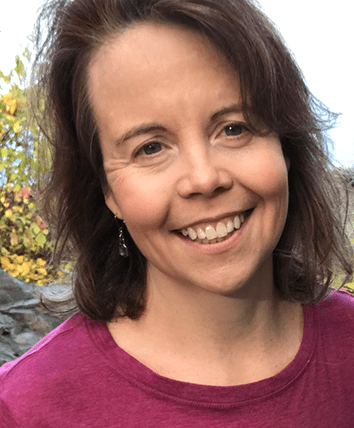
Allyson Sherlock
Assistant Professor
Visual and Media Arts
Allyson Sherlock, MA ’04, MFA ‘12 teaches post-production for film and television. She works both as an independent filmmaker/animator, and as an avid collaborator with local directors and multimedia artists. Sherlock loves to share her passion for storytelling with her students, and aims to inspire them to see post-production techniques not as a means to an end, but as an endless source of new creative possibilities.
She has taught film editing and motion graphic design at several prestigious institutions, and is the proud recipient of both the Petra T. Shattuck Excellence in Teaching Award from Harvard University Extension School, and the Alan B. Stanzler Excellence in Teaching Award from Emerson College, where she has been a senior affiliated faculty member since 2005. In addition to her professional work, Sherlock volunteers her time as a creative writing teacher for middle and high school students in the area.
She holds an MA and MFA from Emerson, and a BA from Pennsylvania State University.
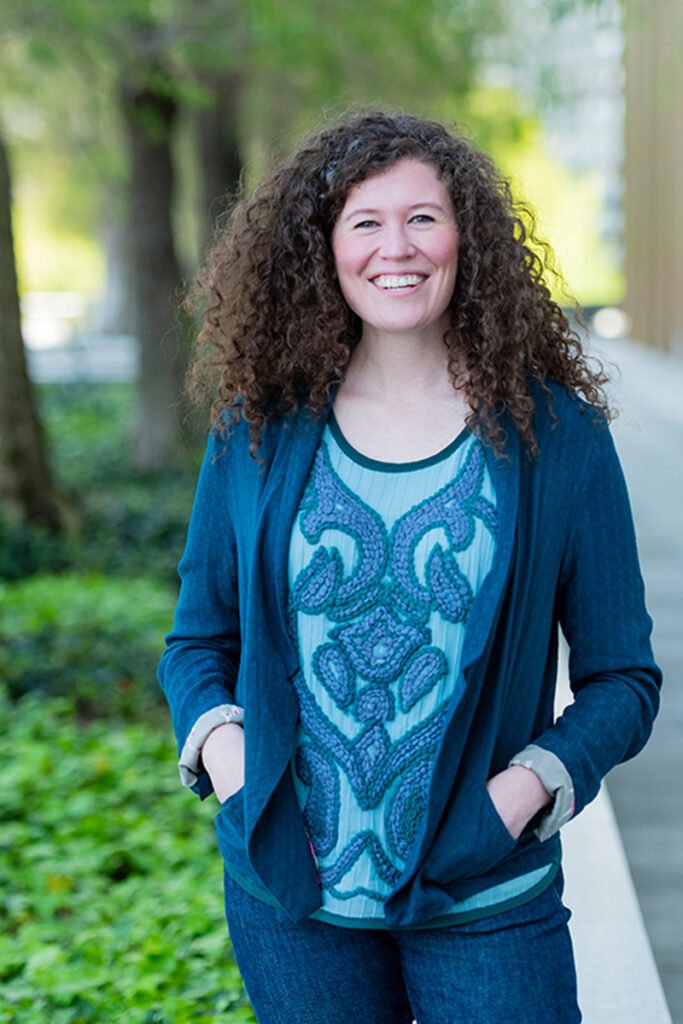
Amber Vistein
Assistant Professor
Visual and Media Arts
Amber Vistein teaches in the area of audio production, with a focus on sound design, sound installation, and music production. In the classroom, Vistein employs a project-oriented approach that puts theory into practice.
From 2017-2019, Vistein was a Composition Fellow with the American Opera Project’s Composers and the Voice program. They were commissioned by the Washington National Opera to compose The Barrens for the American Opera Initiative, which premiered at the Kennedy Center in April 2021. Vistein received a 2022 Discovery Grant from Opera America in support of their first full-length opera, Dark Exhalation, for four voices, ensemble, and electronics; a lab production is planned for 2023. They also have created numerous site-specific sound installations, including Growth Continuum for the deCordova Museum, and collaborated with film-video artists Justice and Hogan Seidel on the short films Murmur, Landscapes, and Let’s Look at Florida.
Vistein holds a BA from New College of Florida, an MFA from Massachusetts College of Art and Design, and an MA and Ph.D. from Brown University. They have taught at Emerson as an affiliated faculty member since 2019.
Categories